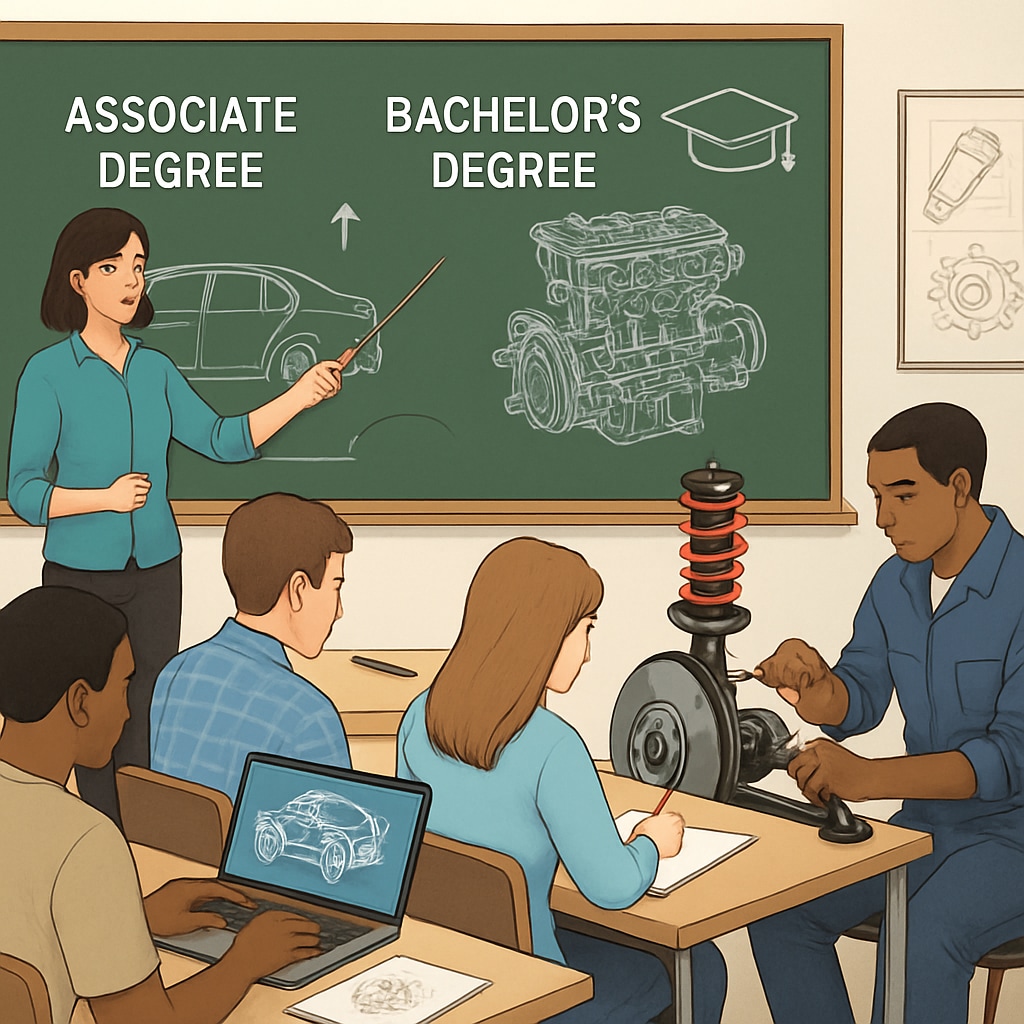For individuals holding an associate degree in automotive technology, especially military personnel considering career transitions, advancing to a bachelor’s degree can offer significant benefits. This pathway not only enhances career opportunities but also allows for the efficient utilization of existing qualifications through credit transfer systems. Understanding how to align your current credentials with compatible bachelor’s programs is key to success.

Understanding the Importance of Credit Transfer
Credit transfer is one of the most critical elements for associate degree holders when pursuing a bachelor’s degree. By transferring credits from an associate degree in automotive technology, students can reduce both the time and cost required to complete their bachelor’s program. However, not all credits are transferable, and the compatibility depends largely on the chosen institution and program.
To maximize credit transfer:
- Research institutions with established transfer agreements for automotive technology programs.
- Verify accreditation of both the associate degree and the prospective bachelor’s program.
- Consult academic advisors to understand how many credits will be accepted.
For example, many universities have partnerships with community colleges to create seamless transfer pathways. The concept of higher education articulation agreements ensures that certain courses are pre-approved for credit transfer, making the process smoother for students.
Top Bachelor’s Degree Options for Automotive Technology Graduates
Choosing the right bachelor’s degree is crucial for aligning your academic efforts with long-term career goals. While an associate degree in automotive technology provides a specialized foundation, there are several compatible bachelor’s programs that allow you to build on your existing knowledge and skills.
Popular options include:
- Automotive Engineering Technology: This program focuses on advanced vehicle systems, manufacturing processes, and automotive design, making it ideal for those aiming for technical or managerial roles in the automotive industry.
- Business Administration: For individuals looking to transition into management or entrepreneurial roles within the automotive sector, a business degree provides essential skills in operations, marketing, and finance.
- Industrial Technology: This interdisciplinary program emphasizes the application of technology in manufacturing and industrial processes, which aligns well with automotive expertise.
- Mechanical Engineering: While this program requires additional prerequisite coursework, it offers a broader engineering foundation that can lead to advanced roles in vehicle design and innovation.
Each of these options leverages your automotive technology background while opening doors to diverse career opportunities in the automotive and related industries.

Special Considerations for Military Personnel
Military personnel with an associate degree in automotive technology face unique opportunities and challenges when pursuing a bachelor’s degree. Many universities offer military-friendly programs, including flexible schedules, online coursework, and recognition of military training as academic credit.
Key resources for military students include:
- Utilizing the GI Bill benefits to cover tuition costs.
- Seeking programs with dedicated military advisors who understand the transition from service to civilian education.
- Exploring Credit for Prior Learning (CPL) programs that assess military training and experience for academic equivalency.
By taking advantage of these resources, military personnel can streamline their degree completion process while balancing other responsibilities.
Conclusion: Taking the Next Step
Pursuing a bachelor’s degree as an automotive technology associate degree holder is a strategic move for long-term career growth. By focusing on credit transfer, selecting compatible degree programs, and leveraging available resources, especially for military personnel, you can make the most of your existing qualifications. Whether you aim to advance in the automotive industry or explore new fields, this educational pathway offers endless possibilities.
Take the time to research your options, consult advisors, and create a plan that aligns with your career aspirations. With the right approach, transitioning from an automotive technology associate degree to a bachelor’s degree can be a rewarding and transformative journey.
Readability guidance: The article uses short paragraphs and lists to enhance readability. Technical terms are defined when introduced, and transitions like “for example” and “as a result” are used throughout for clarity. Passive voice and long sentences are minimized.


